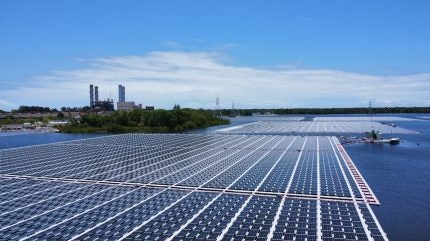
India-based Tata Power has partnered with the Asian Development Bank (ADB) to explore $4.25bn in financing options for clean energy power projects in India.
The memorandum of understanding (MOU) has been signed between the companies at the Climate Conference (COP29) in Baku, Azerbaijan.
The MoU encompasses the evaluation of financing for several projects, including the 966MW solar wind hybrid project and the pumped hydro storage project.
It also includes evaluating funding for other upcoming energy transition and battery storage initiatives and covers ongoing financing to upgrade Tata Power’s distribution networks.
In addition to financial support, the collaboration aims to build resilience and promote inclusiveness, with a special emphasis on climate actions.
This partnership will contribute to India’s aim to reach its renewable energy target of 500GW by 2030.

US Tariffs are shifting - will you react or anticipate?
Don’t let policy changes catch you off guard. Stay proactive with real-time data and expert analysis.
By GlobalDataADB private sector operations director general Suzanne Gaboury said: “ADB is committed to fostering partnerships that promote sustainability and energy security across Asia and the Pacific.
“As part of this strategy, our engagement with Tata Power reflects a shared vision for a low-carbon, inclusive, and climate-resilient future, supporting India’s transition toward sustainable energy solutions.”
Tata Power said this initiative will bolster the country’s renewable energy capacity, reduce reliance on fossil fuels, and encourage a sustainable, energy-secure future.
Tata Power CEO and managing director Dr Praveer Sinha said: “Our collaboration with the Asian Development Bank is a crucial step as we explore innovative financing solutions to drive transformative power sector projects.
“This MOU reinforces our commitment to advancing India’s clean and renewable energy capacity and modernising our power infrastructure, ensuring sustainable and inclusive growth. These initiatives align with India’s ambitious clean energy goals, contributing to energy security and environmental resilience.”



